The Hoffman Law Firm’s The Art Lawyer’s Diary is an art world insider’s guide to navigating the implications of current developments in art law as they relate to artists, collectors, galleries and museums, as well as the implications of current events at the intersection of art, law, politics, and culture for the art world and beyond.
Life in the Time of Shelter-in-Place
Some thoughts on positive action
“You may not control all the events that happen to you,
but you can decide not to be reduced by them.”
~ Maya Angelou
We, Barbara and Hannah, are relatively safe and working remotely, trying to create a new normal using the semblance of working, as is our custom, in a reality in which each moment unmasked is existential and surreal. Nevertheless, we are fortunate given the numbers of people in our world and beyond whose working life has been upended. Perhaps one of the hardest hit industries is that of food services. Most chefs love what they do, which is to nurture us and to provide community. Not surprisingly, the artists of the food sector, like visual artists, are often called upon to donate their arts to help sustain the not-for-profits in our community.
As we think of our global community of colleagues, friends and family, I write this edition to let you know that my thoughts and prayers are with you. This edition of The Art Lawyer’s Diary is dedicated to the honor of the health care workers, first responders, and essential personnel whose dedication to the greater good represents the best of what it is to be human as a beacon of hope to lead us to collectively join our skills to defeat this invisible enemy, COVID-19.
In this newsletter, I highlight individuals, content, and issues that have importance and meaning to me, and may help you get through these challenging times.
Chef Omar Tate is a classically trained chef, and has been cooking for ten years primarily in fine dining farm-to-table cuisine. Omar has stated: ““As I have climbed higher in the restaurant industry, I have been struck time and again by that fact that I am always the only African American in the room. In ten years I have worked under zero black chefs and with only three others as line mates. This absence is echoed by the menus: fine dining is dominated by French, Italian/Mediterranean, and Japanese cuisines…
“I believe that this has happened in part because African Americans for the most part have lost their connection with our farming identity. African Americans were professional farmers for three hundred years and the farmers whose backs this country has been built upon. When Jim Crow and the failure of reconstruction in the south forced the migration of black Americans north seeking prosperity, many abandoned the farming identity because that identity was a direct link to the slave past.”
Omar’s “Honeysuckle” project seeks to reclaim and validate the Black experience through an exploration of the African American culinary tradition, artistic practices and farming techniques.
Omar curates fine dining, visual experiences and lectures. Most recently, before the time of shelter-in place, Omar’s practice focused on curating fine dining visual experiences and lectures, usually in a pop-up dinner format. He was featured on my Instagram cooking at James Beard to celebrate the Juneteenth holiday.
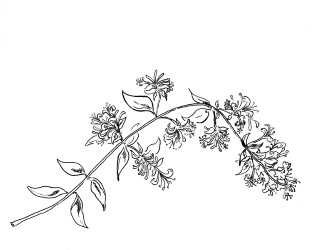
Honeysuckle © Omar Tate, 2019
A letter from Chef Omar Tate:
We have all been affected by the coronavirus in some way shape or form. Whether we know someone who’s been sick, lost work or business, or are simply affected by the lack of social gathering, we can all agree that this is a sobering moment in our history.
Honeysuckle shares in this experience and has been focused on the innermost virtues that created it. One of the strongest tenets of Honeysuckle is community. The gathering of souls around my dinner table to share stories, meals, and libation is something that is missed in this moment, but there is joy to be had. We will re-emerge from this space more focused and energized than before on the things that make us whole. We will rise to the occasion and take actionable steps toward regenerating our interests in creating a healthy earth and society.
I would like to invite you to celebrate with me in the future as we step towards the light of a new dawn. I am excited to have you at my table once again to a simple meal that celebrates our human connections and is a toast to our pasts from which we rise to the future.
Sincerely,
Omar Tate


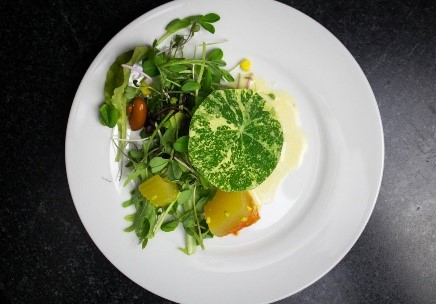
Omar Tate’s menus evoke the food traditions of Black Americans. His dishes lean Southern, but also deliver tastes he grew up with that are not traditionally Southern, such as snow crab, fish stewed in spicy tomato sauce over grits, and bean pie, to name a few. These influences, combined with his classical training as a chef, produce the unique cuisine that is Honeysuckle™.
Your purchase of a ticket will hold a place at the community table. While there are no guarantees, given these uncertain times, Chef Omar Tate envisions that the next pop-up community celebration will take place in several locations and will be entirely holistic, working with the produce and producers of its locality. Menus and locations are TBD.
Release dates and locations are contingent upon the safety of our community as we responsibly navigate the current COVID-19 crisis.
Locations and dates will be determined by the highest concentration of ticket sales.
These tickets are pre-sale only at the moment and are $65 per person.
Contact Chef Omar Tate here.
A pop-up sample menu:
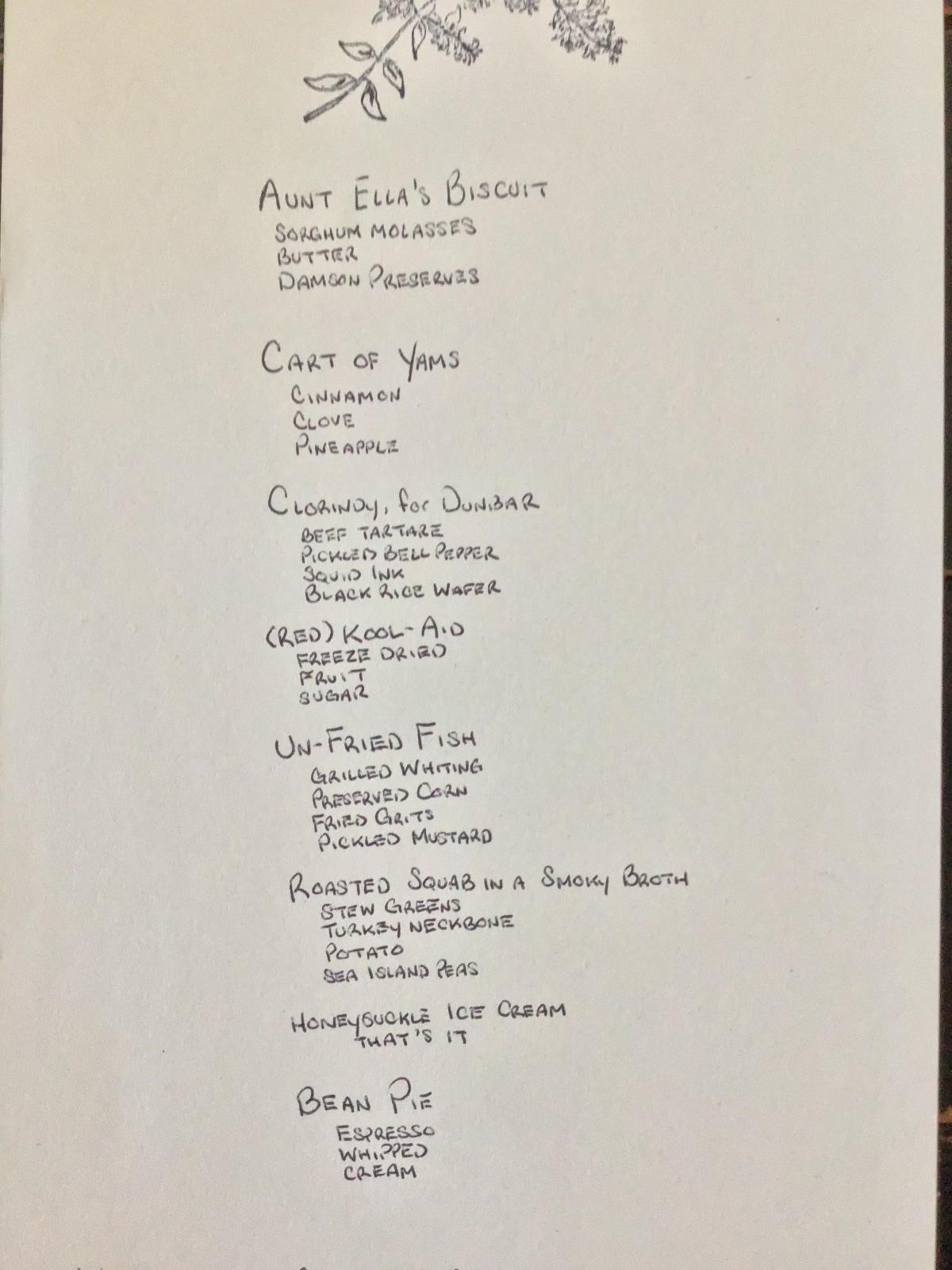
Paul D. Miller, more famously known by his stage name and self constructed persona “DJ Spooky, That Subliminal Kid,” is an experimental and electronic hip-hop musician, conceptual artist, and writer. The idea of the mix is central to his work and his entire aesthetic, in which disparate connections are made between different times, cultures, and styles, and through which something new can emerge. His approach is a source of controversy regarding his heterogeneous oeuvre, which creates unexpected bridges linking the art gallery to the dance club to the concert hall as well as addressing complex issues such as climate change, indigenous rights and the DJ’s role on global issues. Collaboration is very much a part of Miller’s aesthetic sensibility, and some of his recent projects are collaborations including with scientists. In 2009, presented The Science of Terra Nova at the American Museum of Natural History. This was a presentation of his project called Terra Nova: Sinfonia Antarctica on the changing face of Antarctica in the wake of global climate change. In his effort to better understand the fragile environment and ecosystem of Antarctica, Miller traveled to the continent with a mobile recording studio in order to capture sounds of ice and the reverberations it produces. The project embraces a multi-media approach, including video, sound, and images. He was also a National Geographic Fellow and the first Artist in Residence at the Metropolitan Museum of Art.


A letter from DJ Spooky, March 20, 2020:
People – we are all in this together. No one living has been through a global pandemic of this magnitude. As an artist who is active with global culture and the arts, you can assume that the cancellations, postponements, and market uncertainty will affect the arts for months to come, if not years. There’s a great article in MIT Journal – “We’re Not Going Back to Normal” if you want to get some insight into how this virus situation is changing social space.
As of today, many countries, cities, and towns across the world are going into lockdown. The decisions we make over the next couple of days will determine how critical this window of time is to slow down the virus’s spread, and it’s important to remember physicists and mathematicians call “exponential thinking” can help frame this situation. It’s going to really get deeper, and more macro effects will surface.
I deeply care about the state of what’s happening, and wanted to share a couple of resources and a video project I did with National Geographic in Abu Dhabi recently. If you have some free time to read and watch a film made about life in an intriguing part of the Middle East, please take a moment away from the anxiety and enjoy the project.
Other writers and artists are doing more projects online to highlight the shift from physical space into more virtual – and virtuoso – performances like renowned cellist Yo Yo Ma who has set up a project to encourage creatives to make music to help you get through this time.
Here’s a good overview of the situation by my friends at The Intercept and my colleague, Naomi Klein on “Coronavirus Capitalism”
Billboard has set up a state by state resource guide for musicians and artists who need support.
And there’s a great group of musicians on Facebook who have created NYC COVID19 Support and Resource Group
In the absence of national leadership, it is up to all of us to make things more dynamic and resilient. Let’s slow this pandemic down and support front line medical providers who are at highest risk. Stay safe and be thoughtful during this time of deep uncertainty.
Thanks,
Paul aka DJ Spooky
Editor’s Note, Another Art Resource:
My friend Barbara Pollack has co-curated with Anne Verhallen “How Can We Think of Art at a Time Like This? An Online Exhibition.” The featured artist for Friday, April 3 is my friend Judith Bernstein: tune in on Zoom here at 4 pm Friday for a live conversation with Judith. Email [email protected] for the password.
These days, we are experiencing a rapid swing between inconvenience and matters of life or death, and the felt uncertainty of our futures: an unparalleled and unique emotion. Those of us privileged to have some degree of control—or an illusion of control—over our lives must realize that the majority of people have neither. To experience one’s privilege is not only to know it intellectually. I am hopeful that these circumstances will have a profound impact on the consciousnesses of several of my, and our, communities.
Privilege aside, the reality is that COVID-19 knows no boundaries, except isolation and distance, a reality not possible for those, for instance, at migrant camps at at the border of the US, or in refugee camps around the world. Being forced to live without access to proper sanitation in crowded quarters, even without COVID-19, is a public health emergency.
There are an astounding 25.9 million refugees globally. It has been said that refugees have lost all of what is needed to defend themselves against the virus. As one expert stated: “The displaced have lost their homes, their communities, their space, their hospitals… They have crowded these places that they thought were safe, and now, of course, these are the places that can be the most unsafe places possible.”
The global migrant and refugee crisis is something we cannot forget; and is something which the recent project “Monuments for the Living” by Krzysztof Wodiczko helps us to remember. Krzysztof is another artist who, like Paul, uses art to brilliantly express the crises of our time, and to make us aware of voices not otherwise heard. In Paul’s case, it is the sound of melting of the glaciers; in Krzysztof’s case, it is the voices of refugees, speaking to us of their plight.

See the Art 21 website for their current program, Extended Play, which includes Krzysztof’s “Monuments for the Living,” and continued free online programming with artists.
I am aided in positive thinking at this time by meditation and humor. These resources, I hope, can provide the same sustenance for you.
Sojourn Explorers releases a newsletter every three weeks called “8 Good Things.” The most recent edition, which came out last Friday, included the following meditation guide from Jack Kornfield, which I excerpt below:
How to Find Peace Amidst COVID-19, How to Cultivate Calm in Chaos
“If you do not know Jack Kornfield, he is a world-renown mindfulness teacher and best-selling author of numerous books about the topic. He is also my mindfulness teacher. I am half-way through the two-year teacher training that he does with Tara Brach, also a world renowned author and teacher. Recently, Jack was interviewed by Tim Ferris. Here are two calming meditations that he suggests. First meditation. Go outside and find a tree, stand next to it. Feel its roots going deep into the earth. Consider how the tree lives through winds and storms. Feel yourself reaching into the soil to stand the winds of change as well as outwardly being rooted, steady, yet flexible. Then, look inward to find these qualities inside yourself. Second meditation. Write your worries on a piece of paper. Allow yourself to feel the energy, emotion, and fears. Then, offer it all to your higher power — however, you define this for yourself — to hold them. Now instead of feeling fear, shift toward sensations of spaciousness, vastness, opening to steadiness, and calm. Either meditation is something you can revisit again and again as you feel emotionally compelled.”
Click here for the link to the 8 Good Things newsletter.
More from Jack Kornfield:
Jack Kornfield and Tara Brach gave a talk on Thursday, April 2 on “Resilience in Challenging Times.” You can access the replay and several other resources here, including a two-part talk entitled “A Steady Heart in the Time of Coronavirus.” They write: “We hope these will support you in moving through the uncertainty, fears, and losses that come with this kind of crisis.”
Another resource is a guide to doing a home retreat, and it includes an audio guided half-day retreat. You can access this half-day retreat here.
And last but not least, a pause for humor.
From: LETTY COTTIN POGREBIN // NEWSLETTER #68 // MARCH 30, 2020

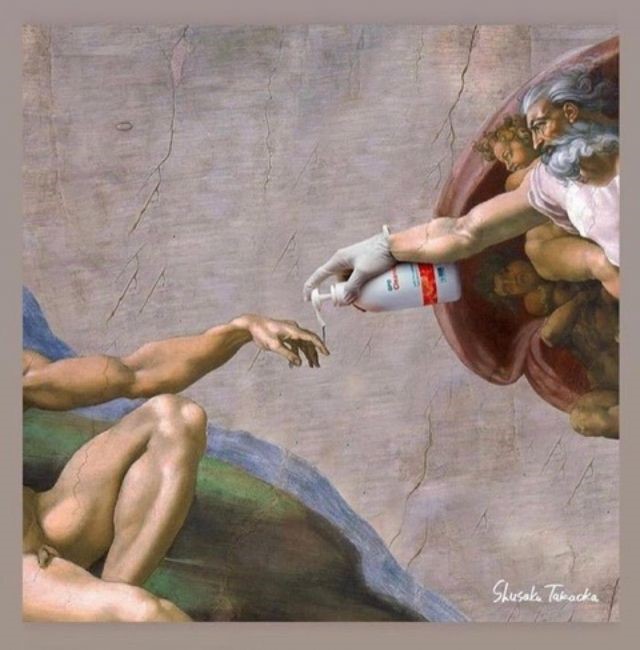
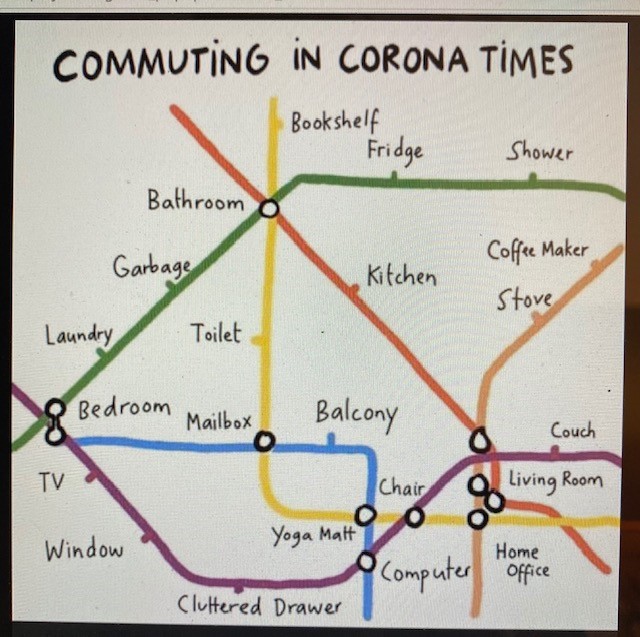

Bill Gates Dishes About President Donald Trump Meetings In Exclusive Video | All In | MSNBC


Click here for the link to subscribe to Letty Cottin Pogrebin’s newsletter.




